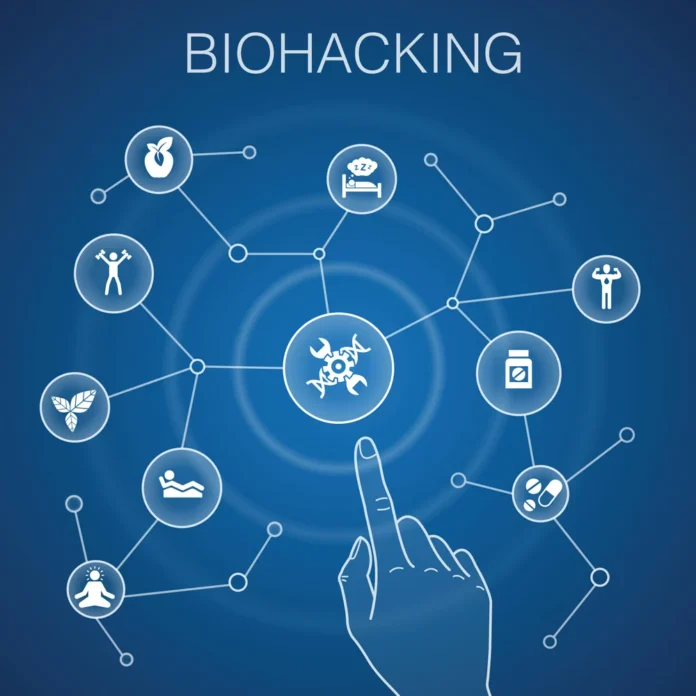The Biohacking Movement: Enhancing Human Performance Through Biology and Technology
In recent years, the biohacking movement has gained popularity as individuals experiment with biology and technology to enhance their health and performance. Biohacking encompasses a wide range of activities, from modifying one’s diet and lifestyle to using wearable technology and even gene editing. While the movement offers the potential for significant benefits, it has also sparked concerns about the potential risks and ethical implications of DIY biology. In this article, we will explore the biohacking movement, its potential benefits and risks, and the ethical implications of this emerging trend.
What is Biohacking?
Biohacking refers to the use of biology and technology to enhance one’s health and performance. This can include activities such as tracking one’s diet and exercise, using wearable technology to monitor vital signs, and even using gene editing technology to modify one’s DNA. The goal of biohacking is to optimize one’s body and mind for maximum performance and longevity.
Biohacking can be divided into two main categories: Quantified Self, which involves tracking and analyzing one’s biological data, and DIY Biology, which involves experimenting with biology and technology to enhance one’s health and performance.
Applications of Biohacking
Biohacking has the potential to revolutionize many aspects of our lives, from healthcare to sports performance. Here are some of the key applications of biohacking:
-
Health and Wellness
Biohacking can be used to improve one’s overall health and wellness, by optimizing one’s diet, exercise, and sleep. This can lead to improved energy, mood, and overall well-being.
-
Sports Performance
Biohacking can also be used to enhance sports performance, by optimizing one’s training, nutrition, and recovery. This can lead to improved strength, endurance, and agility.
-
Disease Prevention and Treatment
Biohacking can also be used to prevent and treat diseases, by modifying one’s genes or using technology to detect and monitor diseases at an early stage. This could lead to improved health outcomes and reduced healthcare costs.
-
Cognitive Enhancement
Biohacking can also be used to enhance cognitive performance, by improving memory, focus, and creativity. This could have applications in fields such as education and business.
Benefits of Biohacking
The potential benefits of biohacking are significant, and they could have a major impact on our lives and society. Here are some of the key benefits of biohacking:
-
Improved Health
Biohacking can lead to improved overall health and wellness, by optimizing one’s diet, exercise, and sleep. This could lead to reduced risk of chronic diseases such as diabetes and heart disease.
-
Increased Performance
Biohacking can also lead to increased performance in various fields, from sports to cognitive performance. This could lead to improved productivity and achievement.
-
Disease Prevention and Treatment
Biohacking has the potential to revolutionize disease prevention and treatment, by providing early detection and personalized treatment options. This could lead to improved health outcomes and reduced healthcare costs.
-
Longevity
Biohacking could also have the potential to increase longevity, by optimizing one’s health and preventing age-related diseases. This could lead to longer, healthier lives.
Risks of Biohacking
Despite the potential benefits of biohacking, there are also significant risks to consider. These include the potential for harm, ethical concerns, and the risk of DIY biology becoming too powerful and uncontrollable.
-
Harm
One of the biggest risks of biohacking is the potential for harm, particularly when it comes to DIY biology. DIY biology experiments could lead to unintended consequences, such as the creation of dangerous organisms or the spread of disease.
-
Ethical Concerns
There are also ethical concerns around the use of biohacking, particularly when it comes to gene editing and the potential for creating “designer babies.” The use of gene editing technology raises questions about equity and access to these technologies, as well as concerns around the commodification of life.
-
Unintended Consequences
Biohacking can also have unintended consequences, particularly when it comes to the long-term effects of modifying one’s biology. It is not yet clear what the long-term effects of biohacking will be, and there is a risk that we could unintentionally cause harm to ourselves or future generations.
-
Regulatory Concerns
There are also regulatory concerns around the use of biohacking, particularly when it comes to DIY biology. There are currently few regulations in place to govern DIY biology, which could lead to unsafe practices and harm to individuals and society.
-
Inequality
There is a risk that biohacking could exacerbate existing inequalities in society, particularly around access to healthcare and technologies. This could lead to a situation where only the wealthy are able to access the benefits of biohacking, further increasing the divide between the rich and the poor.
Ethical Implications of Biohacking
The biohacking movement raises a number of ethical implications, particularly around the use of gene editing and the potential for creating designer babies. The use of gene editing raises questions about equity and access to these technologies, as well as concerns around the commodification of life.
There is also a need for transparency and accountability in biohacking, particularly when it comes to DIY biology. It is important that individuals understand the risks and potential consequences of their biohacking experiments, and that they are held accountable for any harm that may result.
Finally, there is a need for regulation of biohacking to ensure that it is developed and used in a responsible and ethical way. This will require collaboration between governments, industry, and civil society to develop effective regulatory frameworks.
Conclusion
In conclusion, the biohacking movement has the potential to revolutionize many aspects of our lives, from healthcare to sports performance. However, as with any powerful technology, there are risks and challenges that must be addressed. It is important that we approach biohacking with caution, and take steps to ensure that it is developed and used in a way that benefits all of humanity.
To achieve this, there is a need for collaboration between governments, industry, and civil society to develop ethical guidelines and regulations for biohacking development and deployment. We must also be mindful of the potential risks and unintended consequences of biohacking, particularly when it comes to DIY biology and the use of gene editing technology.
Ultimately, the future of biohacking and its impact on humanity will depend on how we choose to develop and deploy this technology. We must approach biohacking with caution, and take steps to ensure that it is developed and used in a way that benefits all of humanity. By working together, we can harness the potential of biohacking to create a better future for ourselves and future generations.
Google News | Telegram
















